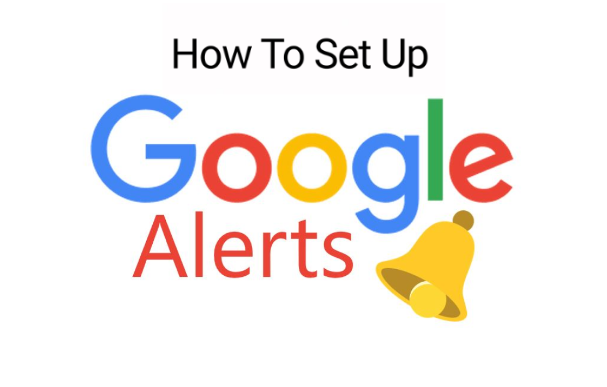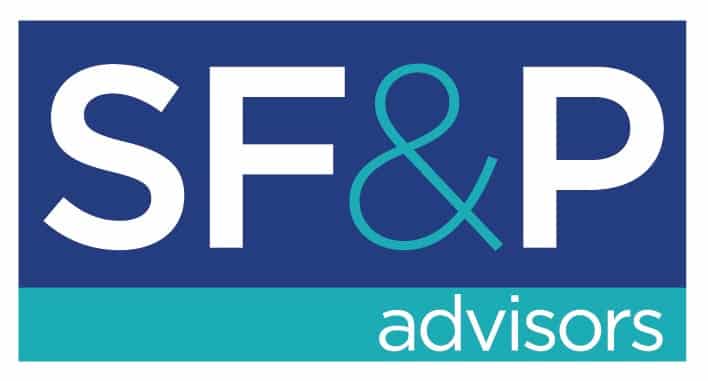Are you tired of manually searching for the latest news, updates, and information on topics that matter to you?
Google Alerts is your ultimate solution for staying updated effortlessly. Whether you’re a business professional, a content creator, or simply an individual seeking to stay in the loop, Google Alerts offers a powerful and convenient way to monitor the web for relevant content.
Google Alerts serves as your personal online assistant, continuously scouring the internet for specific keywords or topics of interest to deliver timely updates straight to your inbox.
With this invaluable tool, you can effortlessly track industry trends, monitor competitors, stay informed about your brand’s online presence, and discover fresh opportunities and ideas.
In the following sections, we will guide you through the process of setting up Google Alerts, customizing your alerts for precision, optimizing their efficiency, and maximizing their benefits. Get ready to unlock the full potential of Google Alerts and take your information game to the next level.
Short Summary
-
Google Alerts provides a convenient way to automatically receive updates on specific topics, saving you time and effort in manual searching.
-
Staying updated is crucial in today’s fast-paced world, as it allows you to stay ahead of the competition, make informed decisions, and stay informed on industry trends.
-
Google Alerts can be used for various purposes, including monitoring your brand’s online presence, tracking industry news, following specific topics of interest, and staying updated on competitors.
-
By setting up Google Alerts, you can receive timely notifications via email whenever new content relevant to your chosen keywords or topics is published online.
Understanding Google Alerts
Google Alerts is a free and powerful online tool offered by Google that allows users to monitor the web for specific keywords or topics of interest. The primary purpose of creating alerts is to deliver timely updates and notifications directly to users’ email inboxes whenever new content matching their chosen search terms is indexed by Google.
Google Alerts operates by continuously scanning and indexing web pages, news articles, blogs, forums, and other online sources. When a user sets up a Google Alert, the tool periodically checks for new content related to the specified keywords or topics.
Once Google discovers new information that matches the user’s alert criteria, it sends an email notification containing a summary or snippet of the content, along with a link to the source.
Google Alerts can provide a wide range of information based on your preferences.
Here are a few examples
-
News Updates: Receive alerts for breaking news, current events, or specific news topics from news sites.
-
Brand Monitoring: Stay informed about mentions of your brand, products, or services across the web.
-
Industry Trends: Track the latest developments, trends, and innovations in your industry.
-
Competitor Monitoring: Monitor your competitors’ activities, news, and updates to stay ahead of the competition.
-
Content Creation: Get inspiration for new blog post ideas, articles, or research topics.
-
Personal Interests: Stay updated on your favorite celebrities, sports teams, hobbies, or any other topics of personal interest.
-
Research and Publications: Stay informed about scholarly articles, research papers, and publications related to your field of study or interest.
-
Job Opportunities: Receive alerts for new job postings that match your specific criteria.
-
Event Announcements: Stay updated on upcoming conferences, webinars, or events in your industry.
Setting Up Google Alerts

To access Google Alerts, simply visit the Google Alerts website or search for “Google Alerts” in your preferred search engine. Alternatively, you can access it through your Google account dashboard.
Step-by-step instructions to Google Alerts set up
-
Choosing search terms or keywords: Identify the specific keywords or phrases that you want to monitor. Be specific and consider using quotation marks to search for exact phrases.
-
Selecting sources and languages: Choose the sources from which you want to receive alerts, such as news, blogs, web, videos, etc. Additionally, select the language(s) in which you prefer to receive alerts.
-
Adjusting frequency and region settings: Determine how often you want to receive alerts from google alerts page. You can choose between “As-it-happens,” “Once a day,” or “Once a week” options. Also, specify the region or set it to “Any region” to receive alerts from all regions.
-
Setting up email notifications: Enter the email address where you want to receive the alerts. If you have a Google account, you can use the same email associated with it. Then click create alert.
-
Creating and managing multiple alerts: You can create multiple alerts by repeating the above steps. To manage your alerts, you can access the Google Alerts dashboard, where you can edit, delete, or pause alerts as needed.
By following these steps, you can set up personalized Google Alerts tailored to your specific interests and monitoring needs. This ensures that you receive only the most relevant and up-to-date information right in your inbox.
Customizing Google Alerts
Customizing your Google Alerts allows you to tailor the information you receive to meet your specific needs.
Here are some key aspects to consider
Utilizing advanced search operators for precise search results
By using advanced google search operators such as quotation marks, site:, and OR, you can refine your alerts and get more accurate and relevant results.
Filtering and refining alerts using search parameters
Google Alerts provides options to filter results by language, region, source type, and frequency. Adjust these parameters to narrow down your alerts to the most relevant sources and content.
Setting up alerts for specific content types
Google Alerts allows you to specify the type of content you want to receive alerts for, such as news articles, blogs, videos, discussions, or books. This enables you to focus on the content formats that are most valuable to you.
Managing alert settings to avoid information overload
To prevent being overwhelmed by too many alerts, consider adjusting the frequency of alerts or setting up digest emails. You can also use the “Manage your alerts” page to review and fine-tune your alert settings.
Optimizing Google Alerts for Efficiency
To make the most of Google Alerts and ensure efficiency in your information gathering, follow these optimization strategies:
Selecting relevant and specific keywords
Choose keywords that are specific to your interests or monitoring objectives. Consider using long-tail keywords or specific phrases to refine your alerts and receive more targeted information.
Adjusting frequency and timing of alerts
Experiment with different alert frequency settings to strike a balance between staying updated and avoiding overload. Depending on your needs, you can choose to receive alerts as they happen, once a day, or once a week.
Using Boolean operators to refine search queries
Employ Boolean operators like AND, OR, and NOT to refine your search queries within Google Alerts. This allows you to include or exclude specific terms and further narrow down your results.
Refining alerts by excluding unwanted results
If you find that your alerts contain irrelevant or unwanted information, you can refine your alerts by adding negative keywords or excluding specific domains or websites from the results.
Maximizing the Benefits of Google Alerts

Google Alerts offers numerous benefits that can be leveraged for personal and professional purposes.
Here’s how to maximize those benefits.
Monitoring online mentions of your brand or business
Set up alerts with your brand name, product names, or relevant keywords to stay informed about online mentions, reviews, or discussions related to your business. This allows you to address customer feedback or potential issues promptly. And if there are any negative comments or feedback, you’ll immediately know about it and can resolve it.
Tracking industry trends and competitors
Monitor industry-specific keywords, competitor names, or industry-related topics to stay updated on the latest trends, developments, and activities within your field. This knowledge enables you to adapt your strategies and stay ahead of the competition.
Staying informed about specific topics of interest
Whether it’s a hobby, a research interest, or a personal passion, use Google Alerts to receive updates and information about specific topics that matter to you. This keeps you well-informed and enables you to engage with the latest content and discussions.
Discovering new opportunities and ideas
By setting up Google Alerts for relevant keywords or emerging trends, you can discover new opportunities, ideas, or collaborations in your industry or area of interest. This helps you stay innovative and ahead of the curve.
Tips and Best Practices

To make the most out of Google Alerts and ensure a smooth experience, consider the following tips and best practices:
Avoiding common pitfalls and false alerts
-
Be specific with your keywords to receive relevant results and avoid noise.
-
Refine your alerts using advanced search operators and exclusion filters to exclude irrelevant content.
-
Regularly review and adjust your alert settings to improve accuracy and optimize google alerts.
Organizing and managing your Google Alerts effectively
-
Create folders or labels in your email inbox to organize alerts by category or priority.
-
Set up filters or rules in your email client to automatically sort and label incoming alert emails.
-
Consider using separate email addresses for different types of alerts to maintain clarity and organization.
-
Choose to receive what Google deems as “only the best results,” or select “All results.”
Using third-party tools to enhance your alert experience
-
Explore third-party tools, such as Google Analytics, Mention, Talkwalker, or Brand24, which provide advanced monitoring and analytics features beyond Google Alerts’ basic functionality.
-
Utilize RSS feed readers or aggregators to consolidate and manage your Google Alerts in one place for easier access and organization.
Regularly reviewing and updating your alerts
-
Set aside time regularly to review and fine-tune your Google Alerts to ensure they align with your changing interests or goals.
-
Remove or modify alerts that no longer serve your needs, and create new alerts for emerging topics or interests.
-
Stay updated with new features or changes in Google Alerts by checking official documentation or reliable online sources.
Conclusion
In a world where information is constantly evolving, staying updated and informed is key to success. With Google Alerts, you have the ultimate tool at your fingertips to effortlessly monitor the web for the latest news, trends, and topics that matter to you.
By setting up and customizing Google Alerts, you can tailor your information intake to meet your specific needs, whether it’s tracking industry trends, monitoring your brand’s online presence, or staying informed about topics of personal interest.
However, the real power of Google Alerts lies in the optimization and utilization of its features. By implementing best practices such as refining search queries, managing alert settings, and utilizing a third-party free tool, you can enhance the efficiency and effectiveness of your alert experience. Remember to regularly review and update your alerts to ensure they align with your changing interests and goals.
Take Your Digital Presence To New Heights With Hook Agency!
Are you ready to elevate your online visibility and drive more targeted traffic to your website? Look no further. At Hook Agency, we specialize in PPC, SEO, and web design services that are tailored to boost your digital presence.
Our team of experts is dedicated to crafting strategic PPC campaigns that deliver measurable results and maximize your ROI. With our proven SEO techniques, we’ll optimize your website to climb the search engine rankings and attract organic traffic. Plus, our web design services will ensure your website is visually stunning, user-friendly, and optimized for conversions.
Don’t miss out on the opportunity to reach your target audience effectively and leave a lasting impression. Contact Hook Agency today and let’s collaborate to take your digital presence to new heights. Together, we’ll create a powerful online presence that drives success for your business.
Frequently Asked Questions
What is Google Alerts?
Google Alerts is a free online tool provided by Google that allows users to monitor the web for specific keywords or topics of interest. It sends email notifications whenever new content matching the specified criteria is indexed by Google.
Can I receive Google Alerts for multiple topics?
Yes, you can create alert for different keywords or topics. Simply repeat the process of setting up a Google Alert for each topic of interest.
Can I customize the types of content I receive through Google Alerts?
Yes, you can customize the types of content you receive by selecting specific sources such as news, blogs, videos, discussions, or books. This allows you to focus on the content formats that are most valuable to you.
How often will I receive Google Alerts?
You can choose the frequency of Google Alerts based on your preferences. The options include “As-it-happens,” “Once a day,” or “Once a week.” Select the frequency that suits your needs.
Can I use Google Alerts for brand monitoring?
Yes, Google Alerts is a great tool for monitoring your brand’s online presence. Set up alerts with your brand name, product names, or relevant keywords to receive notifications whenever your brand is mentioned on the web.
Can I track my competitors using Google Alerts?
Yes, you can use Google Alerts to track your competitors. Set up alerts with their company names or relevant keywords to stay updated on their activities, news, or developments.















